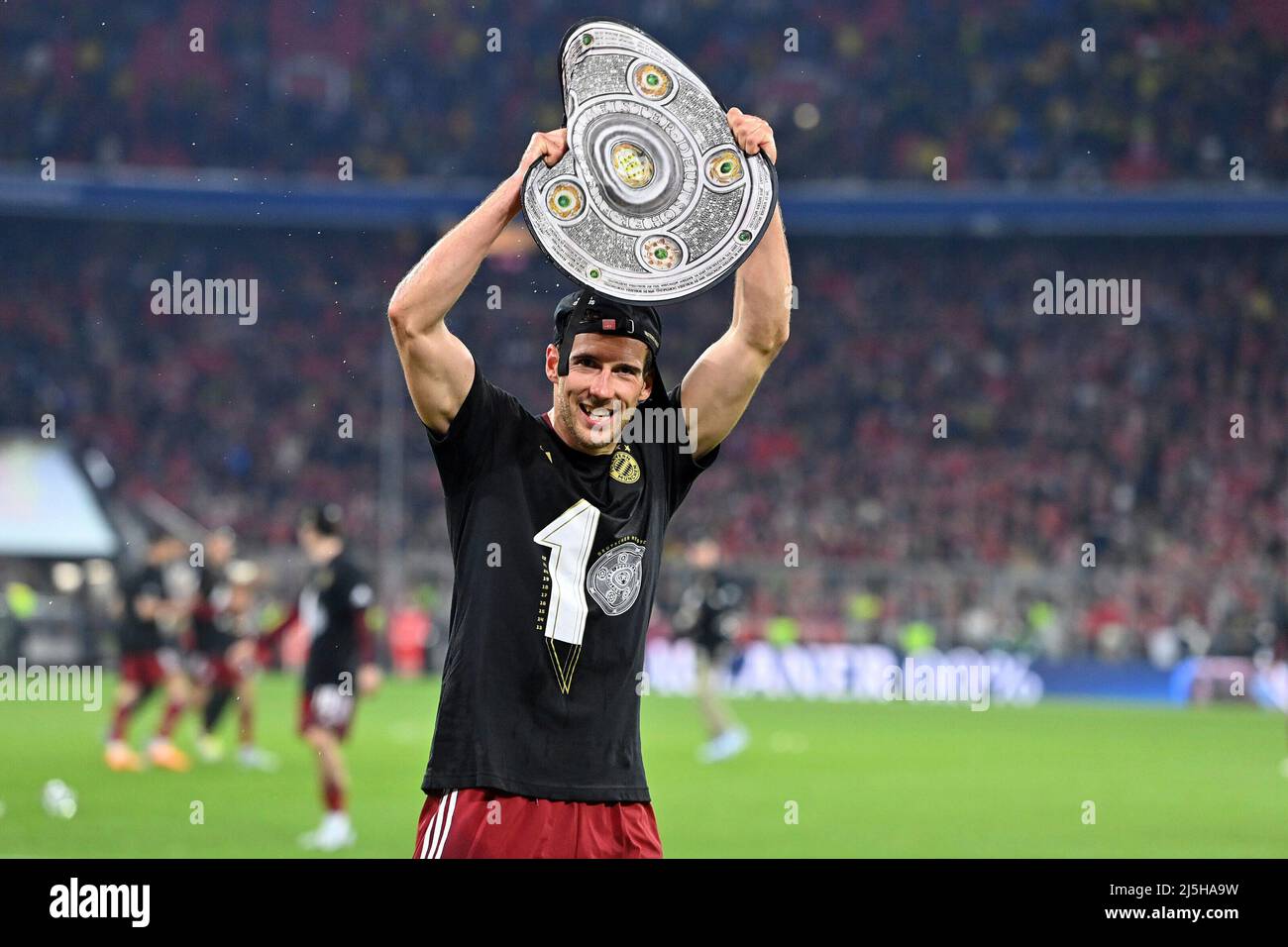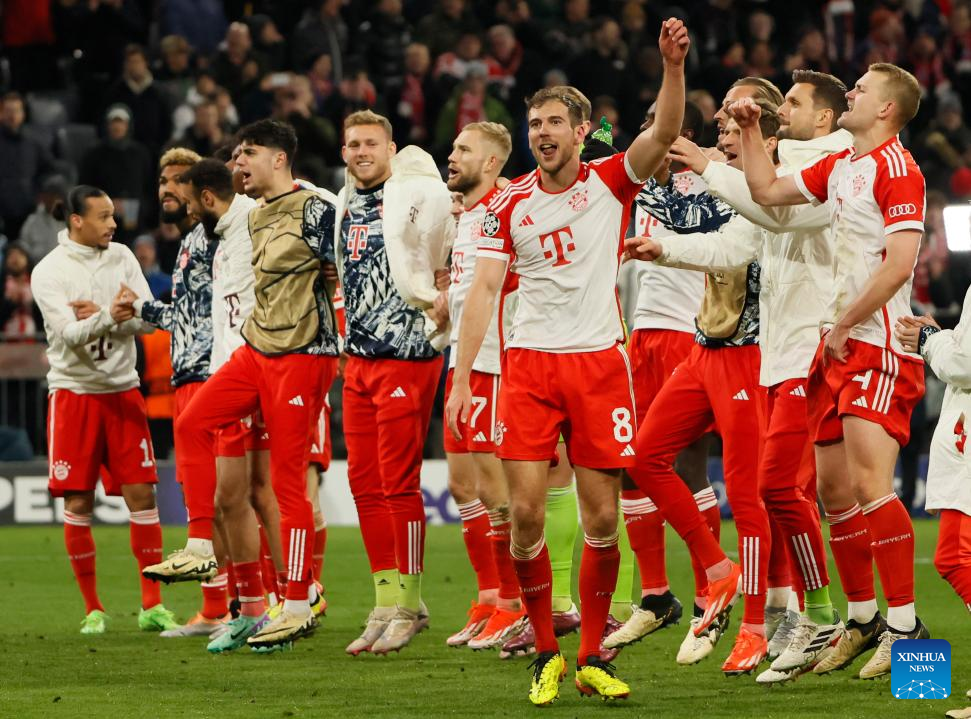The Impact of German Champions
The impact of these iconic German champions extends far beyond the pitch, as they have become symbols of the country's footballing heritage and have inspired generations of fans both at home and abroad.
Legends of the Past
From the iconic Franz Beckenbauer to the goal-scoring prowess of Gerd Müller, Bayern Munich has produced countless legendary players who have etched their names in the annals of the Bundesliga and international football.
The Future of German Champions: New Contenders on the Horizon?
As Bayern Munich's dominance in the Bundesliga continues, the question arises: will other clubs be able to challenge the Bavarian giants and potentially dethrone them as the champions of German football?
The Flick Phenomenon
More recently, Bayern Munich has continued its domestic dominance under the leadership of Hansi Flick, who took over as interim manager in 2019 and quickly turned the team into a well-oiled machine. Flick's tactical acumen and ability to get the best out of his players have been instrumental in Bayern's continued success.
See more: dc370 ku11 net
Bayern Munich's Dominance: A Decade of Success

The Decline of Historic Clubs
In contrast, some of the Bundesliga's historic clubs, such as Hamburger SV and 1. FC Köln, have struggled to maintain their former glory, experiencing periods of decline and relegation from the top flight. This has highlighted the constant need for clubs to adapt and reinvent themselves to remain competitive in the ever-evolving landscape of German football.
The Emergence of Outsiders
Additionally, other Bundesliga clubs, such as Bayer Leverkusen and VfL Wolfsburg, have demonstrated the potential to challenge the established order. These clubs' investments in their squads, youth academies, and management have created a more competitive landscape, hinting at the possibility of a more unpredictable future in the Bundesliga.
The Economic Powerhouse: Bayern Munich's Financial Dominance
Bayern Munich's success on the pitch has been mirrored by its financial prowess, making the club an economic powerhouse within the Bundesliga and European football.
The Modern Era Superstars
In more recent years, Bayern Munich has continued to attract and nurture world-class talent, with players like Thomas Müller, Robert Lewandowski, and Manuel Neuer leading the club to unprecedented heights of success.
As the Bundesliga continues to evolve, the future of German football champions remains uncertain. However, one thing is clear: Bayern Munich's legacy as the dominant force in German football will endure, inspiring future generations of players, coaches, and fans to strive for greatness on the pitch.
From the Pitch to the Stands: The Passion of German Football Fans
The success of Bayern Munich and the Bundesliga as a whole would not be possible without the unwavering support and passion of German football fans.
The Rise of Other Contenders
While Bayern Munich's early dominance was impressive, the league soon saw the emergence of other formidable clubs, such as Borussia Mönchengladbach and Hamburger SV, who challenged the Bavarian giants for the league crown. This period of increased competition in the 1970s and 1980s saw the Bundesliga become one of the most exciting and unpredictable leagues in Europe.
The Early Dominance of Bayern Munich
Since the Bundesliga's establishment, Bayern Munich has won the championship a staggering 32 times, more than any other club. In the league's early years, Bayern Munich quickly established itself as the team to beat, winning the title in 1969, 1972, and 1973.
The Heynckes Resurgence
After Guardiola's departure, Bayern Munich turned to the experienced Jupp Heynckes, who led the team to a historic treble in the 2012-13 season, winning the Bundesliga, the DFB-Pokal (German Cup), and the UEFA Champions League.
The Bundesliga was founded in 1963, and since its inception, several clubs have claimed the title of German champions. However, none have been as consistently successful as Bayern Munich.
The Bundesliga's Financial Strength
The Bundesliga's financial stability and commercial success have also had a ripple effect on the broader landscape of German football. The league's robust revenue streams and sound financial management have allowed clubs to invest in their infrastructure, youth development programs, and player recruitment, further cementing the Bundesliga's position as a powerhouse in European football.
The Rise of RB Leipzig
One club that has emerged as a serious contender is RB Leipzig. With a well-structured youth development program, strategic recruitment, and the guidance of talented managers, RB Leipzig has quickly climbed the ranks of the Bundesliga and established itself as a formidable force.
The Bundesliga's influence extends far beyond the borders of Germany, with the league's success and reputation having a significant impact on the global perception of German football.
The Bundesliga's Financial Disparity
The financial disparity between Bayern Munich and other Bundesliga clubs has been a topic of much discussion. While the league's revenue-sharing model aims to promote parity, Bayern's financial resources have allowed it to consistently outspend and outperform its domestic rivals, making it increasingly difficult for them to mount a serious challenge.
The Resurgence of Borussia Dortmund
Borussia Dortmund, Bayern Munich's traditional rival, has also shown signs of a resurgence in recent years. The club's ability to nurture and develop young talent, combined with the arrival of experienced managers, has positioned Dortmund as a potential threat to Bayern's Bundesliga supremacy.
The Bundesliga's Reputation Abroad
The Bundesliga is widely recognized as one of the most competitive and entertaining leagues in the world, with its focus on attacking football, the development of young talents, and the passionate support of its fans. This reputation has helped to raise the profile of German football on the international stage.
The Winning Mentality
Bayern Munich's players have also demonstrated a relentless winning mentality, driven by a desire to maintain the club's legacy of excellence. This mentality, combined with the club's focus on fitness, discipline, and teamwork, has made Bayern a formidable opponent both domestically and in European competitions.
The History of German Football Champions

Conclusion
The story of German football champions, particularly the dominance of Bayern Munich, is a testament to the rich history and sustained excellence of the Bundesliga. From the early days of the league's establishment to the modern era of unprecedented success, Bayern Munich has consistently proven itself to be the undisputed champion of German football.
Managerial Expertise
The continuity and expertise of Bayern Munich's management team have also played a crucial role in the club's sustained success. The ability to attract and retain top-class managers, such as Pep Guardiola, Jupp Heynckes, and Hansi Flick, has provided the team with the tactical acumen and leadership needed to maintain their dominance.
The Tradition of Fandom
German football fans are renowned for their unwavering loyalty, their boisterous support, and the unique atmosphere they create in the stands. This tradition of fandom has been a defining characteristic of the Bundesliga, contributing to the league's global appeal and the sense of community that surrounds the game.
Borussia Dortmund: Bayern's Closest Rival
Borussia Dortmund has emerged as Bayern Munich's closest rival in recent years, challenging the Bavarian giants for the Bundesliga title on several occasions. The club's success has been fueled by the development of talented young players and the guidance of renowned managers such as Jürgen Klopp.
Germany has a rich and storied history in the world of football, with the Bundesliga, the country's top professional league, being one of the most prestigious and competitive in Europe. At the heart of this success lies Bayern Munich, the dominant force in German football for over a decade.
The Role of Fan Culture
The fan culture in German football is not just about cheering on their teams; it is about the social and cultural aspects of the game. Supporters' groups, organized fan choreographies, and the active involvement of fans in the decision-making processes of their clubs have all played a significant role in shaping the unique identity of the Bundesliga.
The Return of Bayern's Supremacy
Despite the challenges posed by other clubs, Bayern Munich eventually reasserted its dominance in the Bundesliga, winning the title in 1980 and then embarking on an impressive streak of success in the 1980s and 1990s. This period solidified the club's status as the undisputed kings of German football.
The Impact of Fans on the Game
The passion and dedication of German football fans have had a tangible impact on the sport itself, with their support and atmosphere creating a sense of energy and excitement that can motivate players and influence the outcome of matches. This deep connection between fans and their clubs is a key factor in the enduring appeal of the Bundesliga.
Talent Acquisition and Development
Bayern Munich's ability to identify and acquire top talent, both domestically and internationally, has been a key driver of their success. The club's world-class scouting network and its willingness to invest in the best players have allowed them to consistently field a squad capable of dominating the Bundesliga.
The Impact on Competitive Balance
The financial gap between Bayern Munich and the rest of the Bundesliga has undoubtedly had an impact on the league's competitive balance. The ability of other clubs to retain their best players and invest in their squads has been significantly limited, making it increasingly difficult for them to keep pace with the Bavarian giants.
The Impact of the Bundesliga on German Football

The Rise and Fall of Other German Football Clubs
/origin-imgresizer.eurosport.com/2024/05/01/3960121-80397128-2560-1440.jpg)
The Winning Formula: Analyzing Bayern Munich's Success
Bayern Munich's unparalleled success in the Bundesliga can be attributed to a combination of factors, including their strategic player recruitment, effective management, and the club's unwavering commitment to excellence.
The Best of the Best: A Look at the Iconic German Champions
Over the years, Bayern Munich has been home to some of the greatest players in the history of German football, each leaving an indelible mark on the club's success.
The Guardiola Era
The arrival of legendary manager Pep Guardiola in 2013 marked the beginning of a new era of success for Bayern Munich. Under Guardiola's guidance, the club won three consecutive Bundesliga titles, cementing its status as the powerhouse of German football.
While Bayern Munich has been the undisputed champion of German football for much of the Bundesliga's history, other clubs have experienced their own ups and downs in the league.
The Exportation of German Talent
The Bundesliga has become a breeding ground for some of the world's best footballing talent, with many of the league's players going on to represent their national teams and excel at the highest levels of the game. This has contributed to the continued success of the German national team, which has won the World Cup on multiple occasions.
The club's financial strength, managerial expertise, and the development of world-class talent have all contributed to its unparalleled success. While other clubs have emerged as challengers, Bayern's ability to maintain its position at the top of the Bundesliga hierarchy is a testament to the club's unwavering commitment to excellence.
Bayern's Revenue Streams
Bayern Munich's revenue streams are diverse, ranging from lucrative sponsorship deals, television broadcasting rights, merchandise sales, and a thriving commercial enterprise. This financial stability has enabled the club to invest heavily in player transfers and infrastructure, further strengthening its position as the dominant force in German football.
In the 21st century, Bayern Munich's dominance in the Bundesliga has been unparalleled, with the club winning the league title an astounding 10 times in the past 11 seasons.
The Rise of Newcomers
Interestingly, the Bundesliga has also seen the emergence of newer clubs that have managed to challenge the traditional powerhouses. RB Leipzig, for example, has quickly established itself as a force to be reckoned with, challenging Bayern Munich for the league title and making a name for itself on the European stage.





